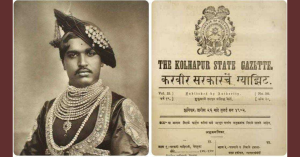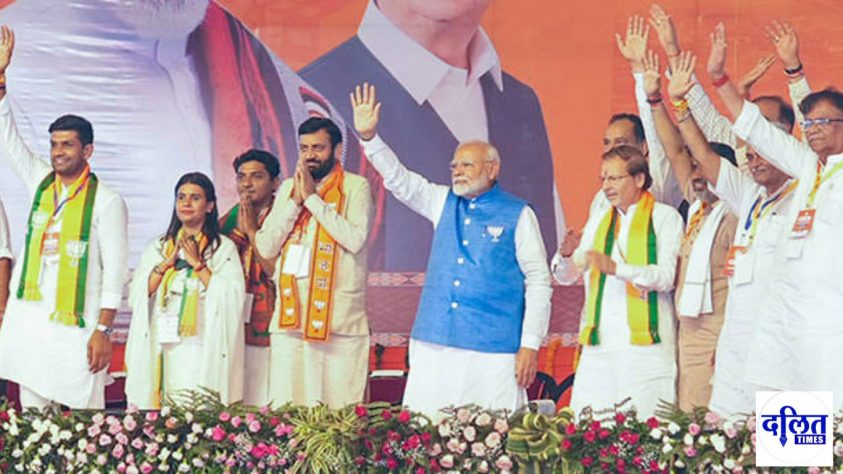Mandal Commission’s ideas followed the reform spirit from Shahu Maharaj’s time. When the government put these ideas into action in 1990, it took another big step to make social justice official. This showed that India still wanted to fix old unfairness and include everyone.
Story : Avani Kulshrestha
Edit : Sushma Tomar
Do you know that a king in history once reserved seats for backward classes? It happened over 100 years ago and was the first push in the country against social injustice. 122 years ago, on 26th July 1902, Chhatrapati Shahu Maharaj, the progressive thinker from Kolhapur, made a issued a historic notification. He reserved 50% of government jobs for people from ‘lower’ classes in his state. This bold move was the first time any government in India had such a rule, long before the country gained independence and formalized such measures in its Constitution.
Chhatrapati Shahu Maharaj’s decision was a seminal step in changing Indian society. He wanted everyone to have equal opportunities, and so he focused on uplifting the backword classes. This set an example for his successors. Maharaj’s reforms were not just administrative; they were a profound statement of the need for equality and opportunity in a society marred by centuries of caste-based discrimination.
Flash-forward to the twentieth century, and talks about reserving seats in India got a new dimension with Dr. B.R. Ambedkar, a leader in the fight for social equality. Dr Ambedkar, the principal architect of the Indian Constitution, advocated fiercely for the rights of Scheduled Castes (SCs) and Scheduled Tribes (STs) in the country.
He believed that reservations were essential to fix historic injustice and give equal opportunities to people who had been marginalised by centuries. Ambedkar backed reservations because he knew how lower castes continuously faced unfair treatment. In debates with other leaders of his time, including Mahatma Gandhi, Ambedkar’s stance on reservations often clashed with Gandhi’s views.

Gandhi wanted social change but worried excessive reservation might divide people further. On the other side, Ambedkar viewed reservations as key to helping people move up in the society. He even said they should last for ten years to make real change happen.
Gandhi’s and Ambedkar’s different ideas led to the Poona Pact in 1932. an agreement that modified the earlier Communal Award to ensure reserved seats for SCs in legislatures but under a framework that balanced both leaders’ concerns. This pact was a turning point in talks about equality and reservations.
Also Read : Pa. Ranjith’s Call for Dalit Leadership and Accountability
Decades later, the issue of reservations continued to evolve. In 1979, India’s government set up the Mandal Commission, also called the Second Backward Classes Commission. B.P. Mandal led this group, which had to find and suggest ways to help the backward classes.
Mandal Commission’s ideas followed the reform spirit from Shahu Maharaj’s time. When the government put these ideas into action in 1990, it took another big step to make social justice official. This showed that India still wanted to fix old unfairness and include everyone.
From Shahu Maharaj’s first order to Ambedkar’s visionary reforms and the Mandal Commission’s comprehensive recommendations, India’s journey towards social justice and equality has been shaped by visionary leaders and landmark decisions. These landmark decisions underscore the long fight for a more equal and just society.



